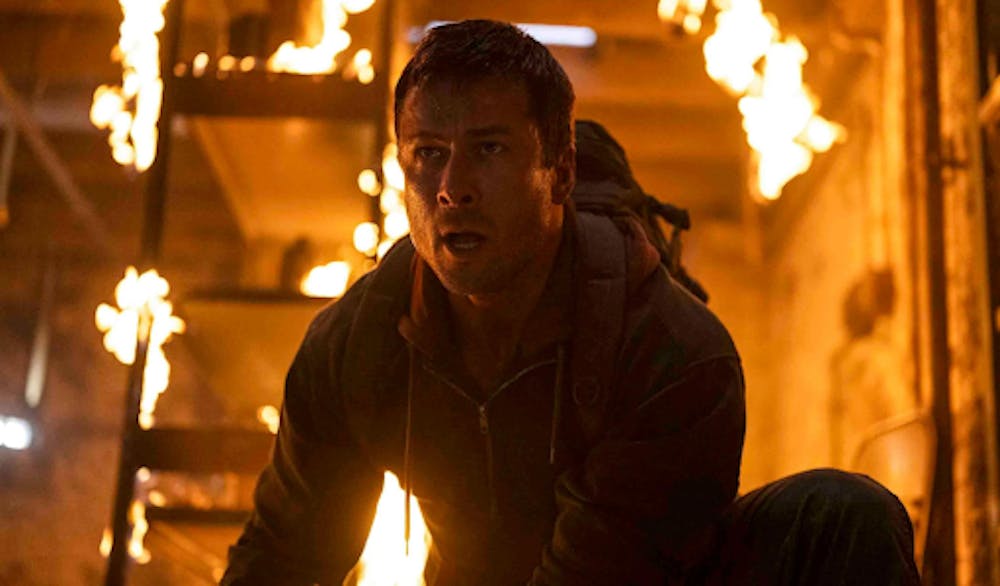By Mahnoosh Arsalan
Staff Writer
Edgar Wright’s latest film, “The Running Man,” is one that will grab your attention and immerse you in the film’s universe, making you reflect on the state of our world today.
Starring Glen Powell, Colman Domingo and Josh Brolin, Wright tells the story of Ben Richards, a man who joins a worldwide game of manhunt for the chance to win some money to save his wife and their sick daughter from their current living conditions. The ultimate goal is to stay alive for 30 days while being livestreamed and hunted by five blood-thirsty hunters.
The film is a remake of the 1987 classic Paul Michael Glaser film starring Arnold Schwarzenegger and an adaptation of Stephen King’s 1982 novel of the same name. Wright spoke to USA Today about remaking the old film, stating that “a lot of the story just hadn't been adapted at all…It really stayed in my mind there was a whole other movie to make.”
“The Running Man” focuses on a grueling 2025 dystopia, which is unfortunately panning out to be a realistic tale on our modern day society. The film released at just the right time, as the political climate of the world is in absolute disarray and havoc, which instills the fear of a future like the one fictionally presented.
Wright’s film takes on strong thematic elements recognized in other 2025 films, for example the political stance against today’s governmental order seen in “One Battle After Another” and the push to be vulnerable and live humanely from both “Superman” and “Frankenstein.”
One of the greatest things about cinema is when directors and writers are inspired from each other and hold a dialogue, it reinforces the urge to create art and collaborate on it.
Powell portrays Richards as a rage-filled force of nature who has been cheated by the government one too many times. He strives for a stable future for his wife and daughter, yet he just can’t seem to get it. His hesitancy to join the famous game show “The Running Man” is ultimately overpowered by his want to save his family’s dire situation, putting his and their lives at risk.
This is Powell’s first time acting in such a serious, aggressive role, and though the role felt completely unnatural as I viewed the film, he ultimately embodied Richards. Powell carries himself in a very specific way as Richards, with intimidation and will. Richards’ determination alone gets him through his journey, and Powell perfectly depicts a man who is fighting for his life.
Despite my uncertainty in seeing Powell in such a different kind of role, I hope he pushes for more nuanced and solemn characters in the future.
If there is one thing I could critique about this film, it would be the unnecessary plot including Emilia Jones, an actress best known for her Oscar-winning film “CODA.” Her character Amelia felt completely unimportant and yet was given way too much significance in the film.
A highlight of the film was its stressful, action-packed sequences. Of course, for an action movie you should expect suspense and a good fight, but Wright excelled in this case. Not only Wright, but Powell brought each action sequence alive. I was on the edge of my seat for the entire film.
An additional highlight was Michael Cera’s appearance in the film, despite his small role. For long-time Wright fans, this was just so sentimental and exciting, as the two worked on Wright’s classic “Scott Pilgrim vs. the World” together.
An admirable piece of the film was the stellar cinematography done by Chung-hoon Chung, a cinematographer who worked on Park Chan-wook’s “Oldboy” and Wright’s “Last Night in Soho.”
Cinematography alone can tell a story, and Chung helped the film hold power through violent and political imaging. Chung and Wright’s collaboration feels so natural and really emphasizes the importance of all the different moving parts in the creation of a film. I hope to see them work together again in the future.
Finally, “The Running Man” is an extremely important film. It highlights the struggle people are forced to endure every single day, whilst being pushed aside and given no attention.
Media portraying dystopian societies become more and more relevant as time goes on, which should not be a possibility. Wright and King have presented audiences with a potential future that should be examined and reflected on, for the sake of our lives. Film holds power and sends messages when times seem impossible, and Wright pushed for that power.







